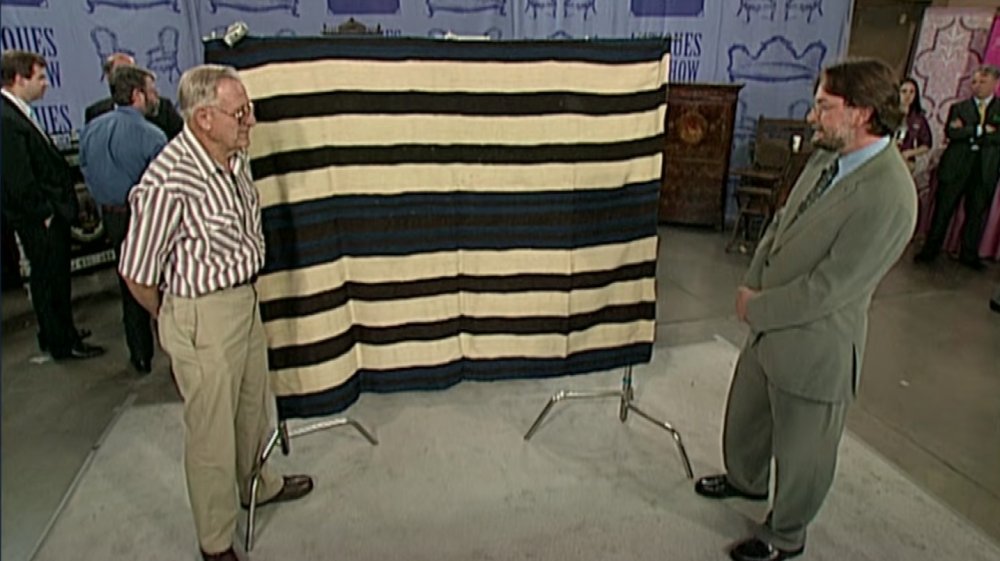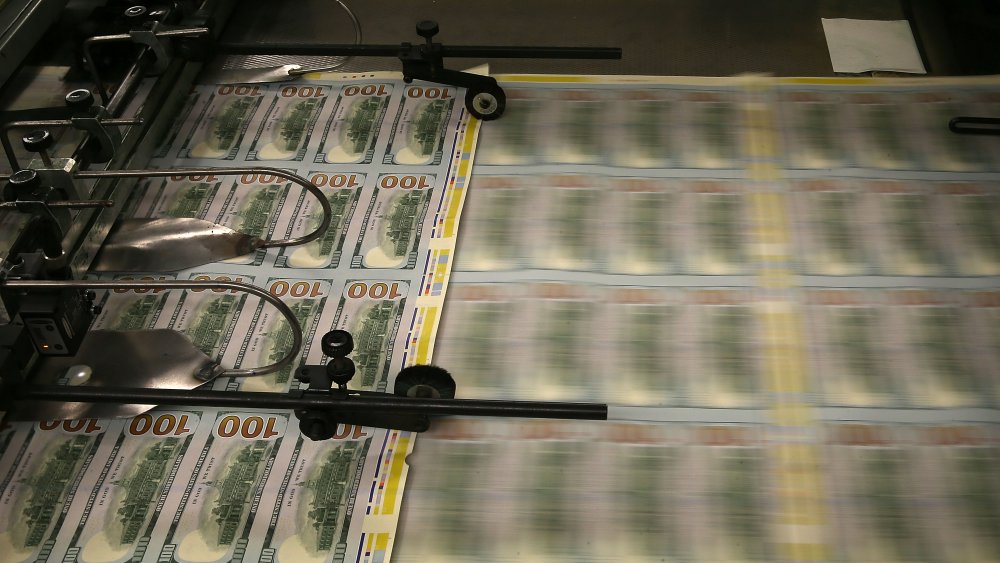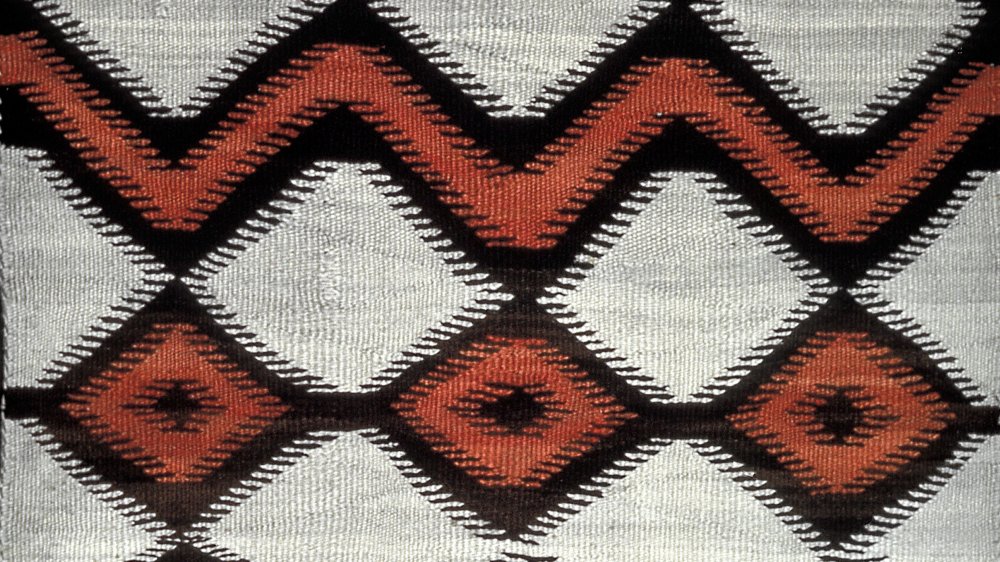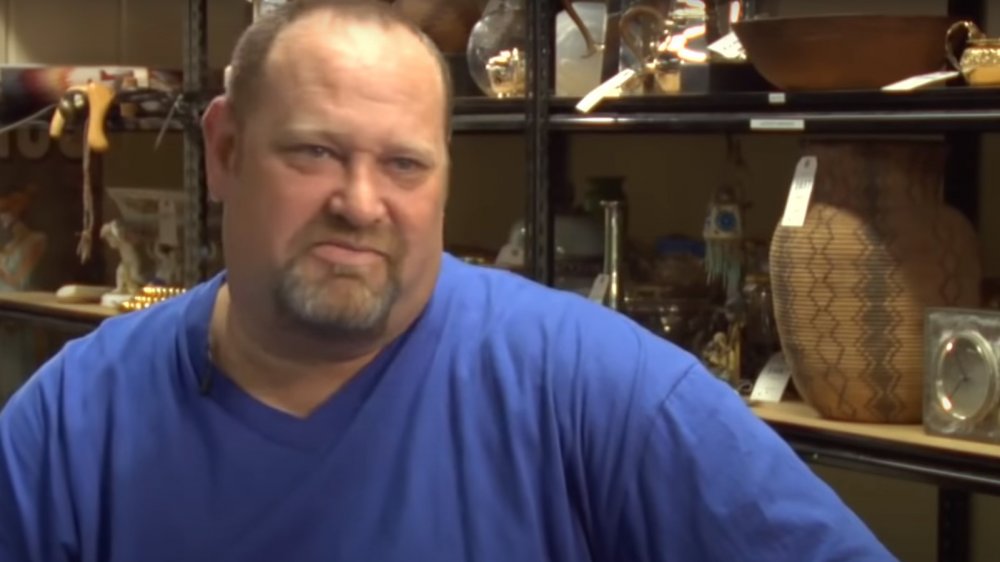What Happened To The Iconic Navajo Blanket From Antiques Roadshow?
In June of 2001, a soft-spoken old white guy hit the soft-spoken old white guy lottery when he brought his grandmother's old blanket to an Antiques Roadshow taping and discovered that it had more than just sentimental value. According to the blanket's owner, Ted Kuntz, his grandmother had received it from a frontiersman that she grew up with, who had received it as a gift from characteristically problematic Old West legend Kit Carson. Kuntz had no way of knowing that the textile he was bringing to the Tucson, Arizona showroom was actually a Navajo Ute First Phase chief's blanket, dating back to the 1800s and estimated at the time to be worth between $350,000 and $500,000. PBS viewers across the country cried into their tote bags as a gentleman's life was forever changed.
But to quote those Disney executives who won't leave the Star Wars franchise alone, "Cool, what happened next? And while we're here, what happened before that?"
Navajo blanket to blank check
According to an Arizona Public Media follow up from 2016, Kuntz didn't feel like he could preserve the blanket properly, given the realization that it was worth more than what most astronauts make in a decade. He wound up selling the piece to an anonymous buyer who had it placed in the Detroit Institute of Arts. Kuntz, meanwhile, used the money from the sale to pay off the home where he and his wife Virginia lived, but didn't seem to go down the familiar path of "dude who falls face first into money and ruins his life." He said that he kept working afterward, choosing not to retire until he turned 74.
The Navajo blanket was, shockingly, not the most expensive item ever appraised on the program. Among some of the other Scrooge McDuckian finds were a $1 million 19th century baseball card collection (featuring players from, no kidding, the Boston Red Stockings) and a $1.5 million custom made Swiss Patick Phillipe pocket watch.
Some blanket statements, for context
The gargantuan price tag affixed to Kuntz's blanket might seem shocking, but it stemmed from the artifact's quality and astonishingly precise place in history.
As PBS points out, Navajo wool blankets were the result of a particular and short-lived period of the tribe's existence. The act of herding sheep for wool only made it to the Navajo in the mid-17th century via Spanish settlers and explorers, and they picked up weaving from the Pueblo around the turn of the 18th century. A few decades of refinement later, and Navajo blankets had become the gold standard in their field: by the 1860s, they sold for between $100 and $150, or around half the price of a house.
Adding to its rarity, the Antiques Roadshow piece was what's called a "first phase" blanket. Navajo blankets are grouped into three phases of production, with the first phase spanning between the 1820s and around 1865. First phase blankets, as displayed on the show, are recognizable by their blue, brown, and white striped patterns, and only around fifty of them exist today.
The Kuntz family's story doesn't represent every occurrence of blanket-based rags to riches in recent years. As a matter of fact, it went on to inspire more of the same, though not always with happy endings.
Rare, but not unheard of
In 2011, Loren Krytzer of California's Liona Valley was trying to sustain his household on the $200 a month in disability checks leftover after his rent was paid, according to NBC News. Living in what was described as "a shack" and unable to work after losing a leg in a car accident, he needed a windfall, and he needed one quickly.
As luck would have it, Krytzer happened to catch Ted Kuntz' appearance on Antiques Roadshow. As luck would further have it, Krytzer noticed that the blanket, valued on the show at between $350,000 and $500,000, bore a striking similarity to the one that he'd watched his grandmother use to catch a litter of kittens. After being turned away by a few ill-informed dealers, Krytzer brought his blanket to John Moran Auctioneers, who put the blanket up for bidding in 2017 and wound up selling it for $1.5 million, an all-time high for the company. After purchasing two houses and a Dodge Charger customized by the shop from Pimp My Ride, Krytzer said of his good fortune "I firmly believe I'm here because years ago I turned my life around ... The things I've been through, I tell people it's a strong faith and a strong mind. Without those things you're not going to make it."
According to the Inyo County Sheriff's Department, he was heard from during an arrest in April of 2020 for exhibiting an imitation firearm in a threatening manner, resisting arrest, and dissuading a witness from reporting a crime, among other things.



